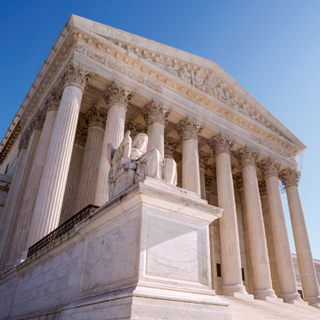
The nation’s highest court Monday took on a case that could weaken public unions’ dues-collection efforts and ultimately limit their power.
During a sometimes-heated session Monday, Supreme Court justices heard arguments on behalf of Mark Janus, an Illinois child support specialist, who is suing the American Federation of State County and Municipal Employees.
Illinois is among 24 states that allow unions to charge “agency fees” even when workers don’t want a union membership. Janus’ attorney said those fees violate free-speech rights because he often disagrees with union action.
AFSCME and other unions argue that Janus and other non-members still benefit from collective bargaining negotiations, a stance supported by the Supreme Court since 1977.
The unions say the Court’s decision would affect more than 5 million public sector workers in those states and the District of Columbia.
Across the country, workers represented by unions that depend on fair-share fees are apprehensive about how the case will shake out. Nursing home workers are often unionized, including some 5,000 at 53 Chicago-area facilities alone.
In California last week, nurses protested outside San Mateo Medical Center Friday with a sign that read “Patient safety comes from union strength” last week. Nurses also demonstrated at six other hospitals around the state to advocate for the preservation of the current union rule.
Margarita Harrington, a nurse with the San Mateo County Health System, said removing fair-share fees will “squeeze” even large unions like hers, which has 86,000 members.
“If suddenly people just stop paying dues, then how will the union be able to sustain itself?” Harrington asked on KQED News.
A similar case brought on behalf of a teacher in 2016 ended in a tie after the death of Justice Antonin Scalia.
A ruling is expected by late June.




